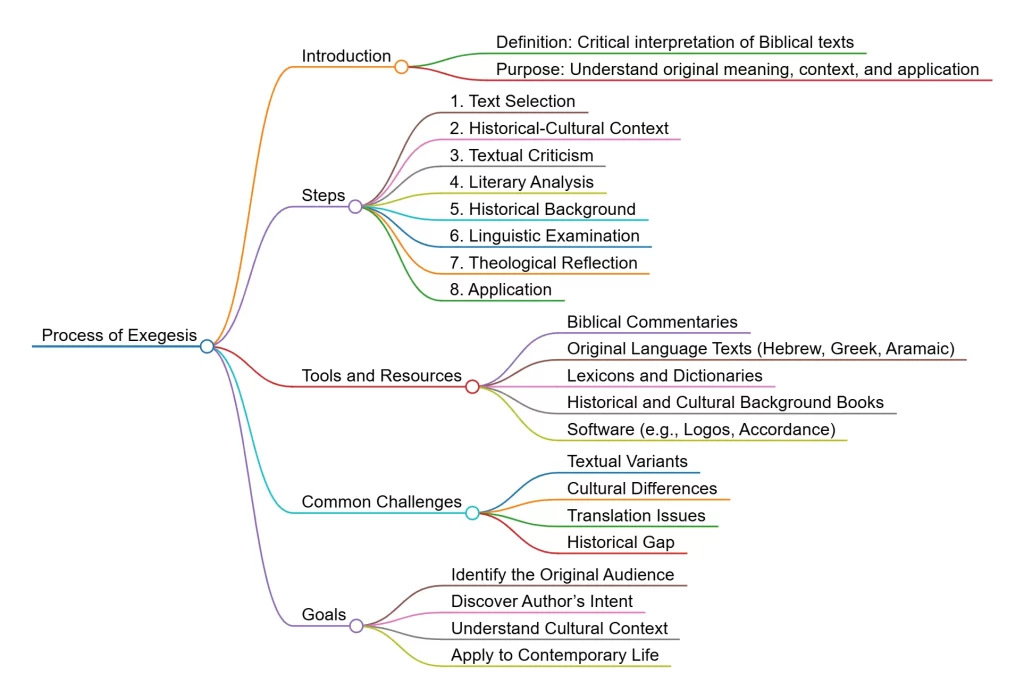- Defining Exegesis and Its Essential Steps
Understanding Worldview: The Lens Through Which We See Life
A worldview is the foundational framework of beliefs and assumptions through which a person interprets reality. It shapes how we understand God, humanity, morality, purpose, and the world around us. Every person operates from a worldview, whether consciously recognized or not, and this framework directs decisions, values, and behaviors.
For the Christian, the biblical worldview is rooted firmly in the truth of Scripture as the inspired and authoritative Word of God. It teaches that God is the Creator and Sustainer of all things, that humanity was made in His image but fell into sin, and that redemption and restoration come only through Jesus Christ. This worldview offers a coherent and consistent way to make sense of life’s complexities and challenges, reflecting the divine revelation emphasized in Easton’s Bible Dictionary and Vine’s Expository Dictionary.
Understanding our worldview is crucial because it impacts every area of life. This includes how we approach the Bible, how we interpret truth, and how we engage with culture and mission. A biblical worldview equips believers to discern truth from error, live with purpose, and witness effectively in a pluralistic world. Let us commit to sharpening our understanding and applying God’s truth with boldness and love.
In the fast-paced world we live in, the Church’s mission must move beyond the four walls of the sanctuary to saturate every sphere of life, including our workplaces, communities, and social networks. To engage these mission fields with clarity and conviction, believers need the disciplined practice of biblical exegesis. This approach is the careful and prayerful interpretation of Scripture. It does more than satisfy academic curiosity. It is rooted in the evangelical commitment to Scripture’s inspiration and inerrancy, and it reveals the author-intended meaning of God’s Word. This understanding grounds believers in truth and empowers them to live and witness with authority and love.
As Kevin Gary Smith explains in his guide to exegetical study, the primary goal is to hear God’s voice as originally intended and to communicate that message faithfully today. This foundation equips the Church not only for personal growth but also for transformational ministry.
Before we can understand what a passage means for us today, we must first start with what it meant to the original audience.
When we grasp Scripture’s message deeply, it reshapes our worldview and compels us to engage outwardly. The Great Commission in Matthew 28:18–20 calls the Church to make disciples of all nations, not merely within church buildings but in everyday settings. Each believer becomes a carrier of the gospel and engages in what might be called mobile evangelism. Exegesis clarifies the gospel’s meaning and helps believers address real-life questions and challenges with biblical wisdom. It also strengthens the Church’s unity by focusing on the core truths of the gospel. This unity transcends denominational boundaries and forms a unified Body of Christ sent into the world. By equipping leaders as expositors and equippers rather than gatekeepers, the Church multiplies its influence exponentially.
In practical terms, every interaction, even a simple coffee break conversation becomes a missional opportunity. The biblical worldview revealed through sound exegesis shapes our priorities, attitudes, and speech, turning ordinary moments into powerful witness. As we continue to grow in our exegetical skills, we also grow in our ability to live missionally, reflecting Christ’s love in word and deed in every context of life. May this August be a fresh call to all believers to immerse themselves in the Word, to understand it we and to go boldly into the world God loves.
Defining Exegesis and Its Essential Steps #

Exegesis is the careful, systematic, and prayerful process of interpreting a biblical text to uncover the original intended meaning of the author. It seeks to draw out the truth embedded in Scripture by considering the historical, literary, and theological context rather than imposing one’s own ideas or biases. Exegesis is foundational for sound biblical interpretation, ensuring that teachings and applications align with God’s revealed Word. It requires humility, discipline, and reliance on the Holy Spirit.
Key Steps in the Exegetical Process #
- Prayer and Preparation: Begin with prayer, asking the Holy Spirit to guide understanding and guard against error.
- Textual Observation: Read the passage carefully, noting key words, repeated phrases, and literary style (e.g., narrative, poetry, prophecy).
- Historical and Cultural Context: Research the background of the text—its original audience, cultural customs, historical setting, and author’s purpose.
- Language Study: Examine important words and phrases in the original Hebrew or Greek to grasp nuances not evident in translation.
- Cross-Referencing: Compare the passage with other Scripture to understand how it fits into the broader biblical message.
- Interpretation: Synthesize findings to determine the author’s intended meaning and theological implications.
- Application: Reflect on how the passage speaks to contemporary life, encouraging faithful obedience and mission.
Definition of Eisegesis #
Eisegesis is the process of interpreting a biblical text by reading one’s own ideas, biases, or presuppositions into the Scripture rather than drawing out the original intended meaning. It contrasts with exegesis, which seeks to uncover the text’s authentic message.
How Eisegesis Occurs #
- The reader approaches the text with a preconceived notion or desired conclusion.
- Interpretation is shaped more by personal opinions or cultural influences than by the biblical context.
- Key verses may be isolated or twisted to support an external agenda.
Common Signs of Eisegesis #
- Ignoring the historical and literary context of the passage.
- Overlooking the original language nuances or biblical genre.
- Selecting verses out of context to prove a point.
- Imposing modern ideas onto ancient texts without proper hermeneutical method.
Consequences of Eisegesis #
- Distorts the true message of Scripture.
- Leads to theological error and confusion.
- Can damage personal faith and church teaching.
- Undermines the authority and unity of the Church.
Guarding Against Eisegesis #
- Commit to rigorous, prayerful exegesis grounded in the biblical languages and context.
- Use trustworthy commentaries and dictionaries like Vine’s Expository Dictionary or Easton’s Bible Dictionary.
- Engage in community study and accountability.
- Seek the guidance of the Holy Spirit to illuminate truth.

Three Scriptural Examples Where Exegesis Deepens Understanding #
1. Genesis 1:26 “Let Us Make Man in Our Image” #
A simple reading might raise questions about the plural pronouns “Let us make” and “Our image.” Exegesis reveals this as a profound hint of the Trinity—God existing as Father, Son, and Holy Spirit. By examining the Hebrew grammar and comparing with other Old Testament passages, exegetes see that the plural language indicates a divine conversation within the Godhead, affirming the unity and diversity of the Trinity. This insight deepens our understanding of human dignity as made in the triune God’s image.
2. Isaiah 7:14 “Behold, the Virgin Shall Conceive” #
On the surface, some might read this as simply a prophecy about a young woman conceiving a child. Exegesis, including the study of the original Hebrew word “almah” and its context in Isaiah, clarifies that the term specifically refers to a young woman of marriageable age who is a virgin. This passage points prophetically to the virgin birth of Christ, as confirmed in Matthew 1:23, reinforcing the miraculous nature of the Incarnation and God’s intervention in history.
3. John 1:1 “In the Beginning Was the Word” #
A casual reading may see “the Word” as a mere metaphor or abstract concept. However, exegetical analysis of the Greek term “Logos” and its use in both Jewish and Hellenistic thought reveals a rich theological meaning. John identifies “the Word” as preexistent, divine, and active in creation, fully God and incarnate in Jesus Christ. This clarifies the deity of Christ and the intimate involvement of the Son in God’s redemptive plan.
Conclusion and Exercise: Engaging Scripture with Intention #
The practice of sound exegesis transforms our reading of Scripture from a passive activity into a dynamic encounter with God’s truth. As we have seen, careful study reveals layers of meaning that simple reading often misses. This deepened understanding not only enriches our theology but also empowers our witness and mission in everyday life. To grow in this vital discipline, believers must commit to approaching the Bible with humility, prayer, and scholarly tools, always seeking the original author’s intent guided by the Holy Spirit.
Exercise: #
Choose a brief passage of Scripture this week, preferably one you have read before, and practice exegetical study on it. Begin by reading the passage slowly and prayerfully.
Before we can understand what a passage means for us today, we must first start with what it meant to the original audience. Ask these questions:
- What is the historical and literary context?
- Who is the original audience?
- What key words or phrases stand out, and what do they mean in the original language?
- What theological truths emerge?
- How does this passage shape my worldview and mission?
Write down your observations and reflect on how this deeper study impacts your understanding and daily walk. Consider sharing your insights with a small group or mentor to encourage mutual growth. May this exercise deepen your love for God’s Word and fuel your passion for His mission in the world.





